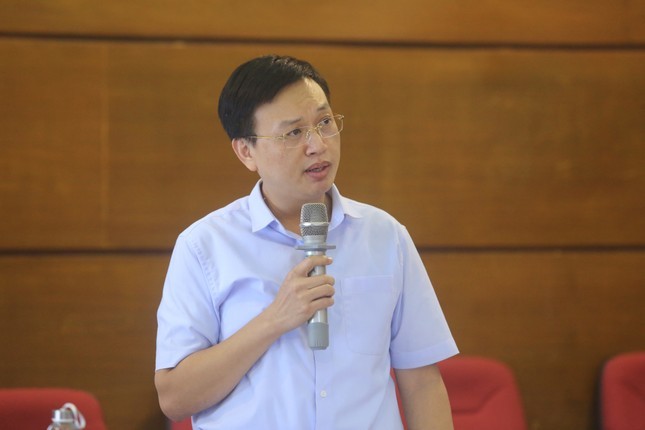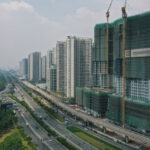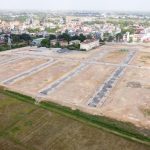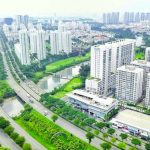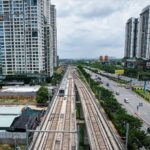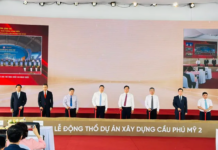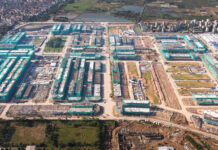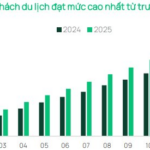“Uncovering the Schemes Behind Land Price Manipulation”
Interviewer: Can you decipher and expose the tactics employed by speculative groups to manipulate land prices, Mr. Tran Xuan Luong?
Mr. Tran Xuan Luong: Speculative groups often employ cunning strategies to profit from the land market. One common tactic is price manipulation through fake auctions. They organize auctions with shell companies or representatives to drive up land prices beyond their true value. Subsequently, this group immediately resells the land at a significant markup. As a result, land prices surge abruptly, failing to reflect their actual worth.
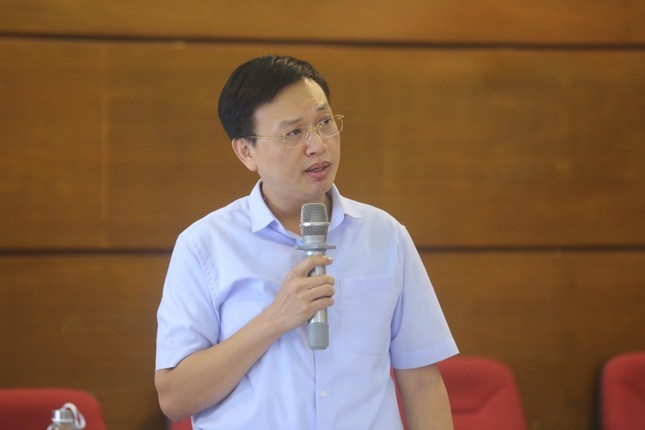
Mr. Tran Xuan Luong – Deputy Director of the Institute for Real Estate Market Research and Evaluation, Vietnam.
Furthermore, manipulating planning information is another frequent tactic. Speculative groups often collude with officials to obtain planning information before its public announcement. This enables them to purchase low-value land parcels and subsequently inflate their prices when the planning information is officially disclosed. This situation not only distorts the real estate market but also creates inequality and negatively impacts the interests of the people.
Another strategy employed by speculative groups is to invest in land parcels within a specific area beforehand. Prior to official auctions, these groups quietly buy land in neighboring areas at low prices. Then, during the auction, they drive up the prices of the new land parcels, creating a sense of price escalation for the entire region. When land prices peak, they sell the previously invested parcels at a substantial profit, reaping enormous gains.
What consequences does this have, Mr. Luong?
Mr. Tran Xuan Luong: The repercussions of uncontrolled land auctions are severe, distorting the market and potentially leading to far-reaching economic and social implications.
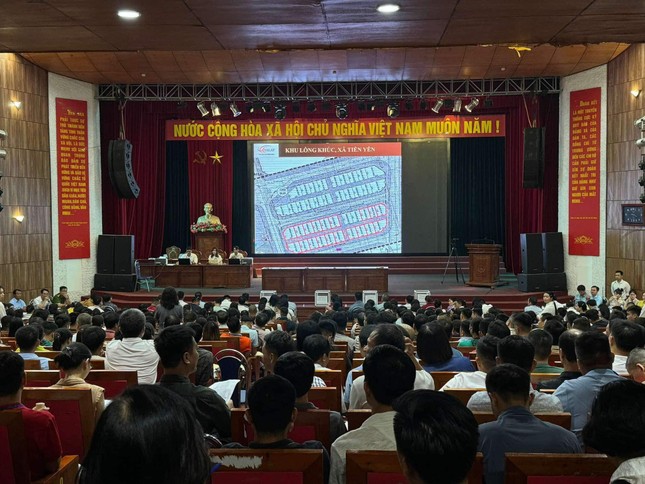
The manipulation of land prices through auctions in the outskirts of Hanoi will distort the real estate market and have societal repercussions.
Firstly, it creates a real estate bubble: When land prices are pushed to unreasonable levels, the real estate market becomes susceptible to a “bubble.” The value of land is inflated far beyond its true worth, creating the risk of a bubble burst during market corrections. The collapse of the real estate market can lead to financial crises, erode investor confidence, and inflict significant damage on the economy.
Secondly, it affects those with genuine needs: Soaring land prices reduce access to land for those with legitimate needs, such as building homes or investing in businesses. These individuals face significant challenges in finding affordable housing or suitable business locations. This not only exacerbates social inequality but also hinders sustainable economic development.
Thirdly, it leads to land resource wastage: Land is withheld for speculation rather than being utilized for its intended purpose, resulting in the wastage of this precious resource. Land parcels that remain undeveloped or are left abandoned for extended periods after auctions not only depreciate in value but also impact urban development plans. Consequently, economic growth stagnates, and national resources are squandered.
“Reclaiming Land in Cases of Auction Winner Violations or Failure to Develop”
Interviewee: In your opinion, what measures are necessary to prevent this situation?
Mr. Tran Xuan Luong: To curb uncontrolled land auctions, decisive and integrated actions are required from the government.
Firstly, stringent oversight of the auction process: Enhanced supervision of land auctions, increased auction deposits, and transparency regarding participant information are imperative. These measures will help deter the involvement of speculative groups and ensure fair and transparent auctions.
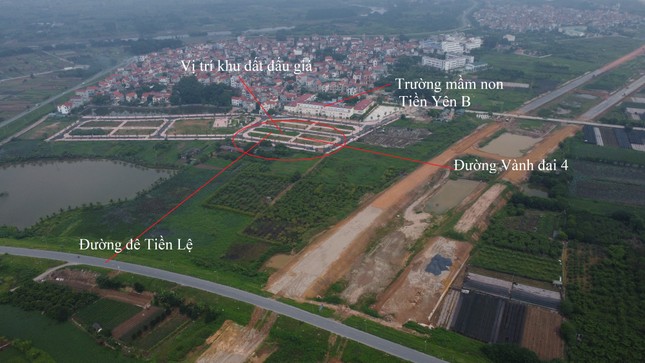
The location of the 19 auctioned lots (LK03-LK04) in Long Khuc village, Tien Yen commune (Hoai Duc district, Hanoi) with winning bids ranging from VND 91.3 million to VND 133.3 million per square meter caused astonishment.
Secondly, tax policy reform: International experience suggests that an effective measure to curb speculation is to impose high taxes on unused or speculated land. Taxes should also be levied on short-term land transactions to deter speculation and money laundering. However, we have not been able to implement this effectively due to a lack of data, information, and expertise in land valuation compared to international standards. As a result, we are still struggling to address the root cause of the problem in line with Resolution 18 of the Central Committee.
Thirdly, integrated planning and development: The government should focus on developing social housing and satellite cities to alleviate pressure on land prices in central and peripheral areas. Land use planning must be implemented comprehensively and with a long-term vision to ensure efficient and sustainable land utilization. Emphasize the development of housing while limiting land transactions.
Fourthly, stringent bidder qualification assessment: Auction participants should be required to demonstrate legitimate financial capabilities and clear land use intentions. This helps deter speculation and money laundering. Additionally, auction winners must commit to using the land for its intended purpose within a specified timeframe. Failure to comply may result in land reclamation and legal consequences, including forfeiture.
Fifthly, enhancement of the land information system: The state needs to establish and improve land information databases, particularly land price data. Land valuation should be based on objective, scientific, and transparent criteria, providing a foundation for fair and accurate land auctions. Simultaneously, this data will assist tax authorities in accurately calculating financial obligations for land transactions, thereby reducing speculation and tax evasion.
Department of Natural Resources and Environment, Hanoi Police Investigate Land Price Manipulation Group
According to the Hanoi Department of Natural Resources and Environment, land auctions in peripheral areas conducted by districts have resulted in prices soaring far above the market average, sometimes even doubling or tripling. The Department is currently coordinating with the police to investigate and identify a group of individuals who are suspected of “pumping up” land prices. “While land auctions are organized by local authorities, we have noticed some instances of unusually high winning bids. We are monitoring the situation closely, especially as the deadline for payment of winning bids approaches, to understand the dynamics. If there is evidence of price manipulation or market distortion, we will take appropriate action. Such activities can create a ripple effect, driving up prices in the surrounding areas and disrupting the healthy development of the real estate market,” said a representative from the Department of Natural Resources and Environment.
The Ever-Growing Gap: Home Prices Leave Citizens’ Wallets Behind
The soaring property prices have outpaced the financial reach of the majority, resulting in a dip in transactions. This, according to the Ministry of Finance, has led to a significant decline in personal income tax revenue from real estate transfers in 2023.
“Transforming the Metro Line 1 into a Visionary TOD Project”
“Experts Propose a TOD-Centric Development Model for Ho Chi Minh City, Starting with the Metro Line 1 Area”
The proposal suggests that Ho Chi Minh City should focus its efforts on developing Transit-Oriented Development (TOD) in the vicinity of the Metro Line 1 corridor, and subsequently replicate this model across the city.

